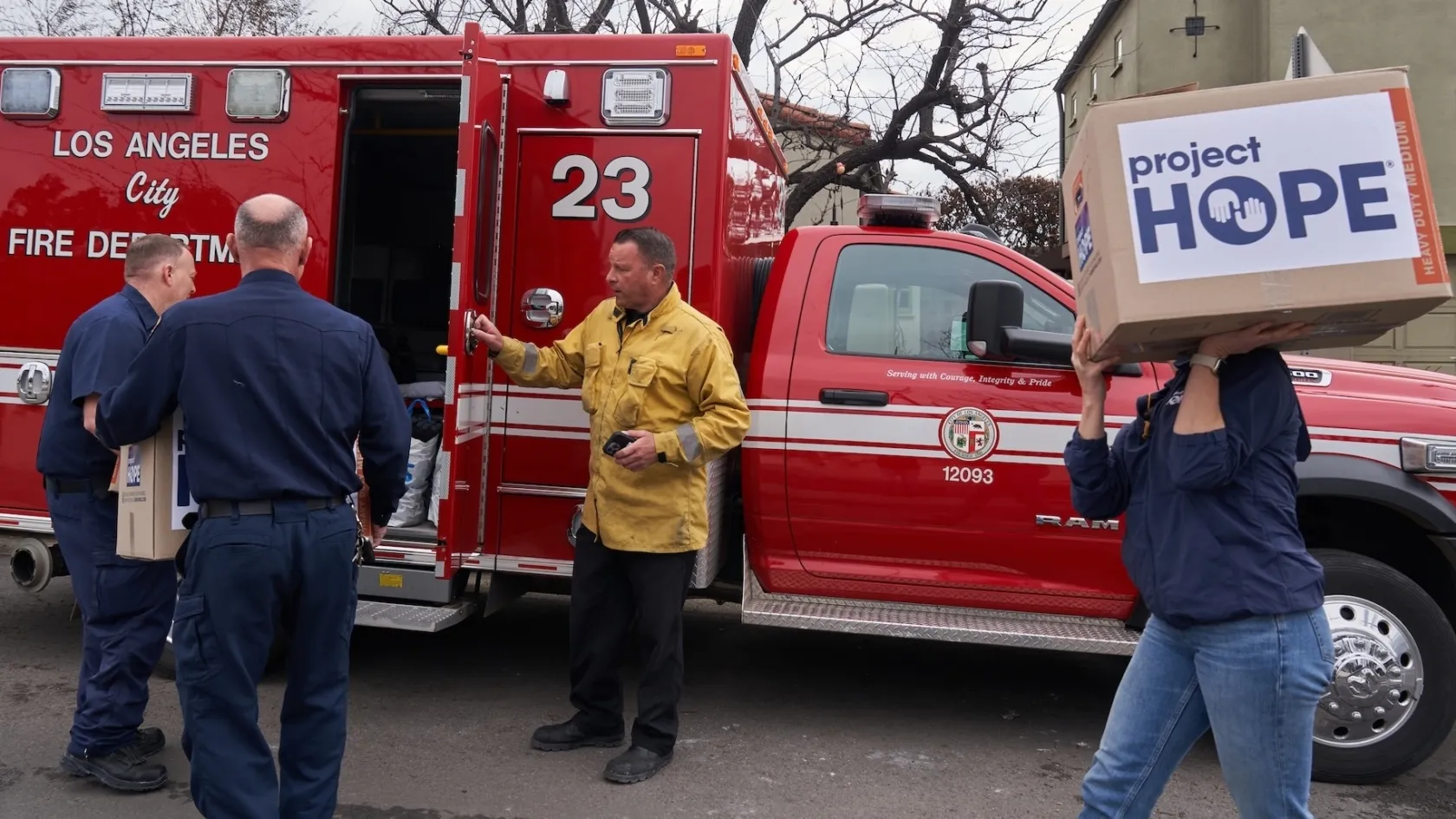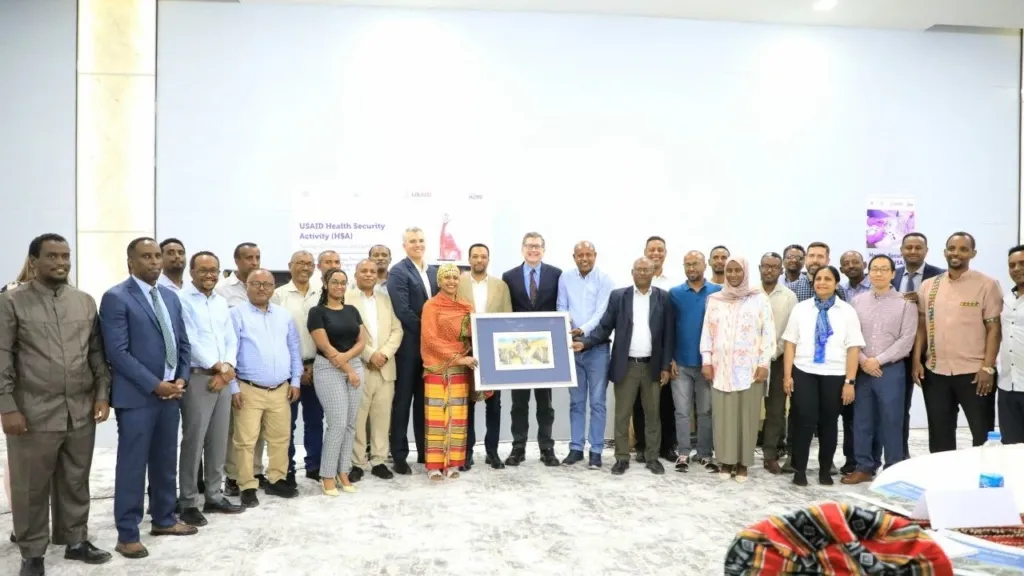Indonesian Midwives Train in Saving Lives at Birth
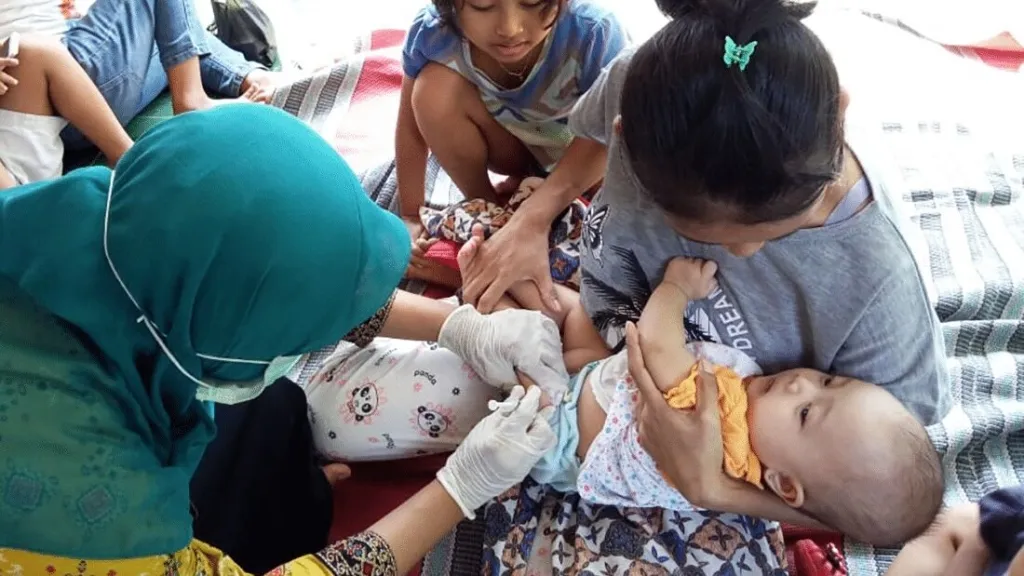
Indonesia might boast the largest economy in Southeast Asia, but that does not mean that the nation is equally strong in the realm of health care. The country struggles with uncomfortably high maternal and neonatal mortality rates. Through funding from Johnson & Johnson, a valued longtime partner, Project HOPE and its partners are training Indonesian midwives and health workers to be better positioned to manage complications at childbirth. Since 2016, this training has made the difference between life and death for more than 85,000 mothers and 11,000 newborns.
In just four years, more than 3,000 midwives, community health volunteers and other health-care providers completed the Saving Lives at Birth training – and Fani is one of them. When she took the training course, she already had 10 years of experience as a practicing midwife at the puskesmas (public health center) in Cikeusal, a rural area just outside the city of Serang, the capital of Bentan province. But she knew the knowledge she’d gain in emergency obstetric procedures would pay off. And she was right.
The Serang district has long struggled with maternal and neonatal mortality. Between 2014 and 2015, the district’s maternal mortality rate increased from 173 to 175 out of every 100,000 births, exponentially higher than the rate in the U.S. (14 for every 100,000 births) and far from the United Nations’ Sustainable Development Goal to reduce neonatal mortality to at least as low as 12 per 1,000 live births by 2030. A lack of resources, poverty and a shrinking population of trained midwives have all contributed to making childbirth more dangerous for mothers in the region.
On June 2, 2018, Fani found out just how important her training was.
An infant’s life hangs in the balance
On that day, a new mother named Marti and her newborn were being treated at the puskesmas. Marti’s baby was already facing challenges associated with a low birthweight of 4.85 lbs. Soon after delivery, the infant went into perinatal asphyxia, a condition marked by deprivation of oxygen that can cause permanent brain and organ damage in newborns if not treated immediately.
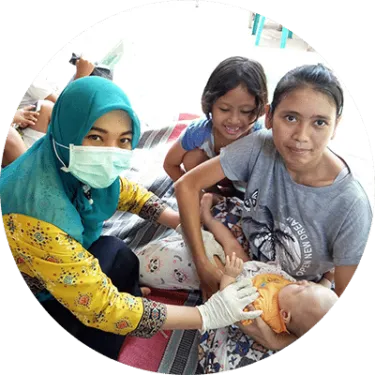
Although this condition is typically treated in a hospital, in rural areas like Serang, obstetric and neonatal care is difficult to find. Even when it is available, women living in poverty cannot always afford the regular screenings that expectant mothers need to ensure a healthy pregnancy and delivery. Moreover, birth attendants in remote villages of Indonesia typically do not have the training required to handle delivery or newborn complications.
Fortunately for Marti and her child, Fani had recently completed Project HOPE’s training on obstetric and neonatal emergencies. Both Fani and the Basic Emergency Obstetric and Neonatal Care (abbreviated PONED in Indonesian) team at the puskesmas were prepared to save the newborn’s life.
Empowering health workers in Indonesia
With the world’s fourth-largest population and a rapidly growing economy, Indonesia has massive potential for growth and development.
Yet there is still critical need for support in empowering health workers and improving health-care services; the nation’s neonatal and maternal mortality rates are comparable to those of much smaller countries with fewer resources. According to the World Health Organization, 99 percent of all maternal deaths during childbirth occur in developing countries, mostly from preventable complications – and Indonesia is no exception.
Project HOPE has been working to curb this trend since 2005 by collaborating with community and government partners to improve access to maternal, newborn and child care in Indonesia. The program concentrates on areas like the Serang district, where limited access to health care means mortality rates are even higher than the national averages. Our team trains doctors, midwives and nurses, while facilitating the donation of equipment such as delivery beds, resuscitation tables and halogen lights that keep infants warm.
As for Marti and her child, Fani and the team performed an emergency resuscitation that allowed the newborn to breathe again. Although hospital care was still not available, the infant was kept on an incubator at the puskesmas. After three days of monitoring, Marti was able to take her baby home.
“I would like to thank Project HOPE that has supported the puskesmas Cikeusal a lot, especially for helping me and other health workers improve our skills in the management of emergency obstetric and neonatal care.”
– Fani, a Community Health Volunteer Midwife
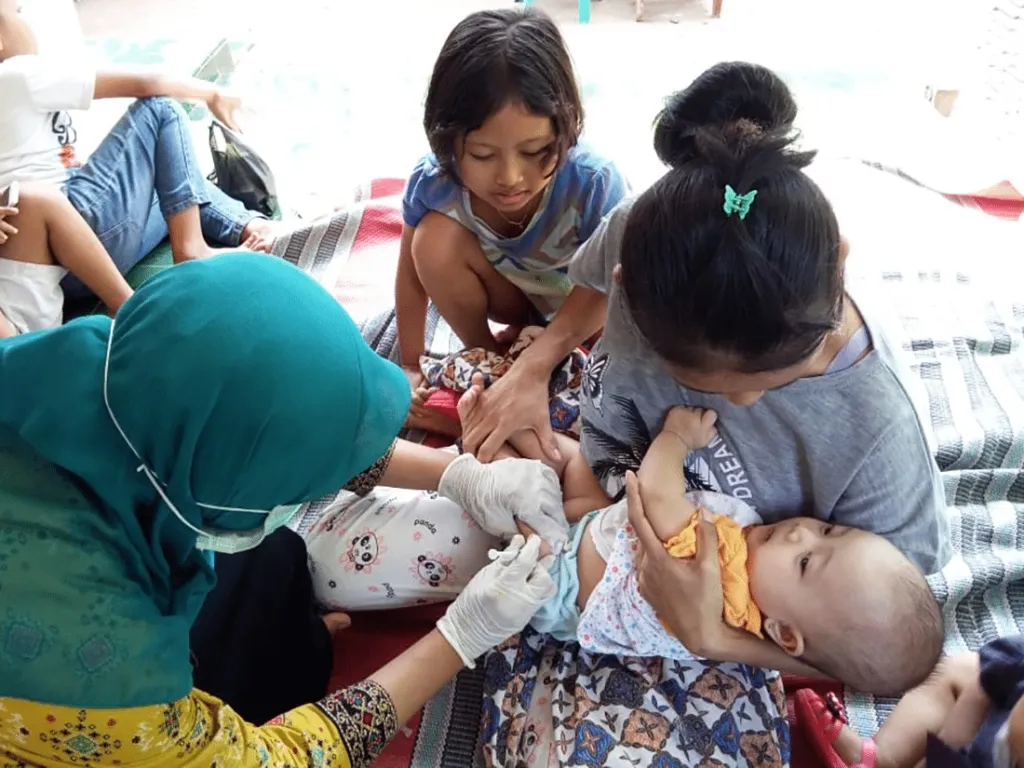
Although Marti’s child was saved, there is still important work to be done to help other mothers and their newborns. Project HOPE and its partners aim to drastically reduce Indonesia’s maternal and neonatal mortality and to help newborn infants and their mothers live healthy lives.
Project HOPE’s work in Indonesia dates back to 1960, during the maiden voyage of the SS HOPE. Since 2005, we have implemented highly successful maternal, newborn and child health programs in Banda Aceh, Nagan Raya, and Aceh Barat, reducing maternal and neonatal mortality by training health center staff and village midwives on basic and essential maternal and newborn care. In 2012, our programs expanded to support women in the workplace and to provide diabetes education for primary care physicians.

